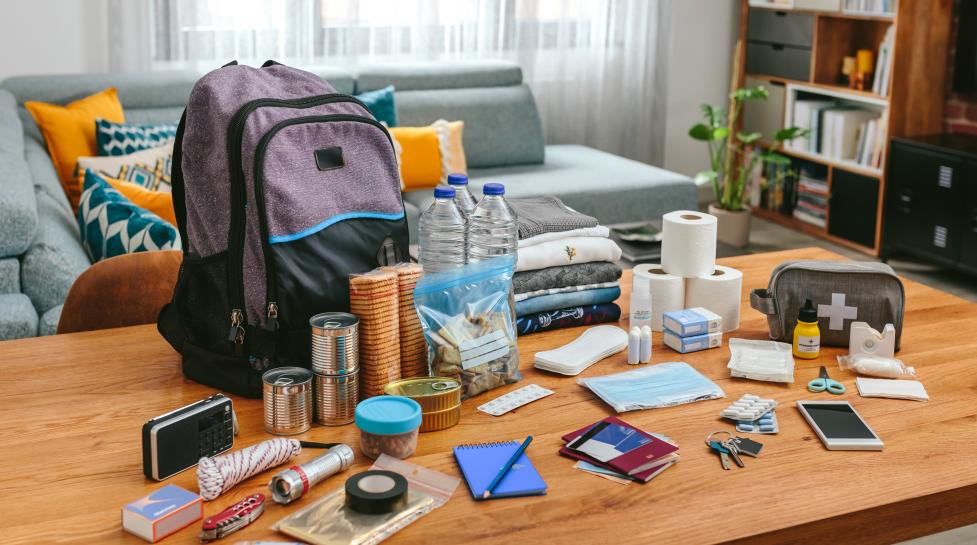September is National Emergency Preparedness Month.
When faced with a sudden emergency situation, every minute matters. Whether hunkering down in your home or evacuating to another location, taking some time now to plan ahead can make a major difference. Use this handy checklist to begin stocking your own emergency preparedness kit
Do you have enough food, water and supplies to last for at least 72 hours after the unexpected happens? Use this handy checklist to begin stocking your own emergency preparedness kit. Most of the items are inexpensive and easy to find. Be sure to take care of survival basics first -- fresh water, clean air and warmth -- and then focus on individual needs for you and your family.
To assemble your kit, store items in airtight plastic bags and put the entire disaster supplies kit in one or two easy-to-carry containers such as plastic bins or a duffel bag.

The Basics
- Water: one gallon of water per person per day for at least three days, for drinking and sanitation
- Food: at least a three-day supply a non-perishable food
- Battery-powered or hand crank radio and a NOAA weather radio with tone alert
- Flashlight
- First aid kit
- Extra batteries
- Whistle to signal for help
- Dust mask to help filter contaminated air and plastic sheets and duct tape to shelter-in-place
- Moist towelettes, garbage bags and plastic ties for personal sanitation
- Wrench or pliers to turn off utilities
- Local maps
- Cell phone with chargers and a backup battery
Maintaining Your Kit
After assembling your kit remember to maintain it so it's ready when needed:
- Keep canned food in a cool, dry place
- Store boxed food in tightly closed plastic or metal containers
- Replace expired items as needed
- Re-think your needs every year and update your kit as your family's need change
The Extras
Consider adding the following items to your emergency supply kit based on your individual needs:
- Prescription medications
- Non-prescription medications such as pain relievers, anti-diarrhea medication, antacids or laxatives
- Glasses and contact lens solution
- Infant formula, bottles, diapers, wipes, diaper rash cream
- Pet food and extra water for your pet
- Cash or traveler's check
- Important family documents such as copies of insurance policies, identification and bank account records saved electronically or in a waterproof, portable container
- Sleeping bag or warm blanket for each person
- Complete change of clothing appropriate for your climate and sturdy shoes
- Household chlorine bleach and medicine dropper to disinfect water
- Fire extinguisher
- Matches in a waterproof container
- Feminine supplies and personal hygiene items
- Mess kits, paper plates, paper towels and plastic utensils
- Paper and pencil
- Books, games, puzzles or other activities for children
